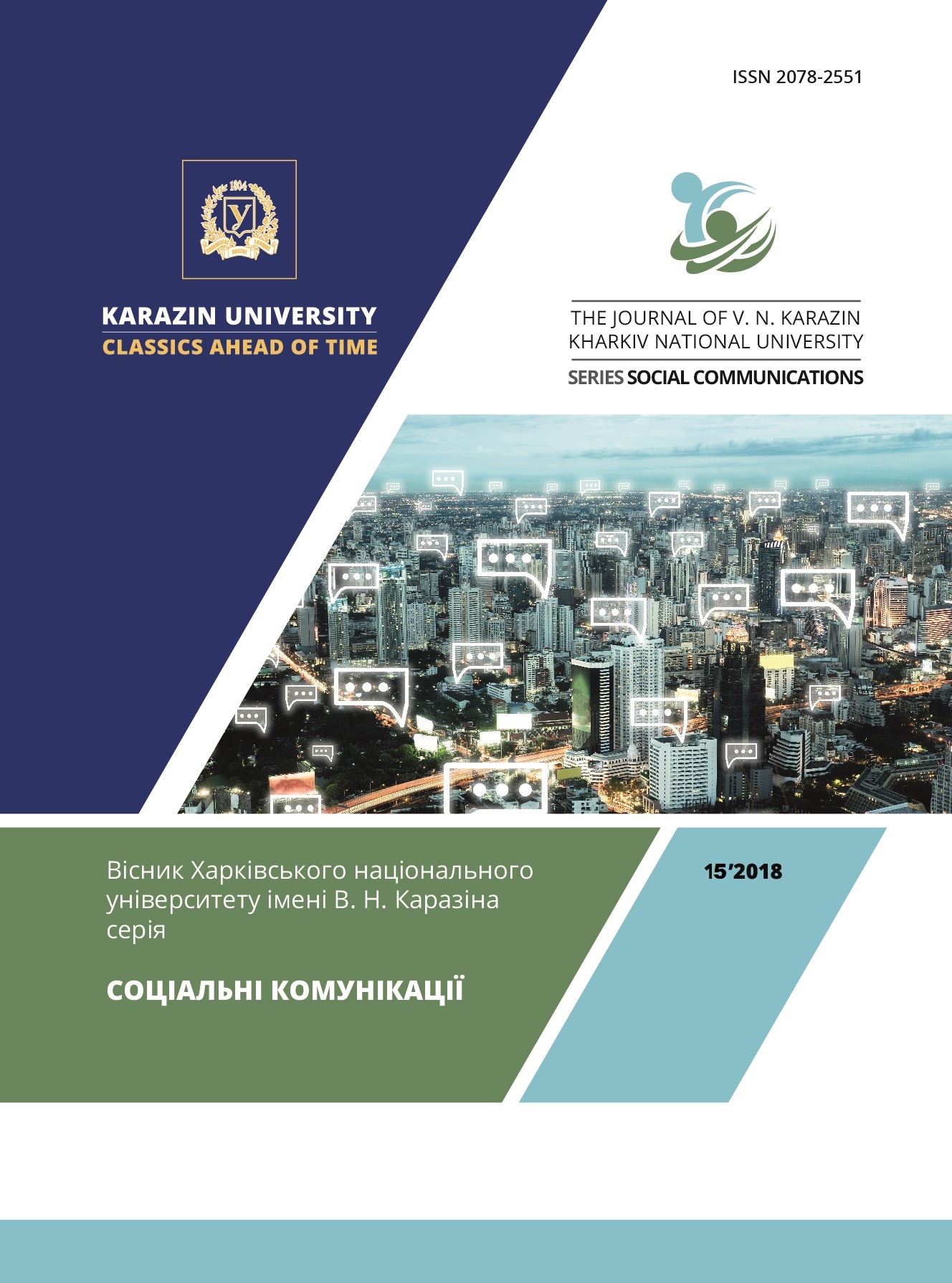«Objectionable Content» in Facebook users’ pages: Ukrainian segment
Abstract
Expressing personal opinion to various subjects and phenomena has become routine for most active social networks users. Manifestation of emotions in social network Facebook to set up communication with frankness and emotionality of expressions is the norm of conversation, which sometimes leads to crossing the line of correctness and ethics. The article is devoted to actualisation of such concept as «Objectionable Content» in named social network (hate speech, obscene lexis, discrimination, their’ enciphering and interpretation) – these concepts are accentuated according to «Facebook Terms and Policies», «Community Standards» part III «Objectionable Content» item 13 «Hate Speech». The main tasks of the research are: analysis of «Terms of Service» in aspect of speech and ethical norms and parameters of control as well as fixation of their maintenance by social network; revealing of forms and peculiarities of «objectionable content» ciphering, parameters of symbols’ alternation within «objectionable content» which makes fixation of hate speech impossible according to «Community Standards»; analysis of thematics and problematics of posts containing «objectionable content» (special attention is devoted to socio-political content and reaction to it by corresponding audience); distinguishing reasons and outcomes of ciphered «Objectionable Content» usage; defining peculiarities of multilinguality in posts and comments in Ukrainian Facebook segment. Theoretical basis for this article is definition of «objectionable content» formed according to dictionaries, guides, scientific researches – with projection of its ambiguous perception and consumption by audience comparing to classical definition of «Objectionable Content». The analysis is performed on data from Facebook personal and community pages, in particular socio-political groups, people of different professions (journalists, political figures, servicemen, teachers, students etc.). Anonymity of Facebook users in maintained in the article as rising of general issue is the goal not disclosure of content produced by the individuals whose pages have been chosen for the research.




